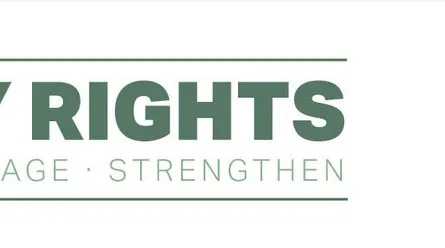Bangladesh: Scrap Plan to Relocate Rohingya Refugees to Isolated Island – Prime Minister to Address U.N. General Assembly Today
26 September 2018
Fortify Rights

(COX’S BAZAR, September 26, 2018)— The Government of Bangladesh should immediately scrap plans to relocate Rohingya refugees to an isolated and flood-prone island in the Bay of Bengal, Fortify Rights said today.
Prime Minister Sheikh Hasina is scheduled to address the United Nations General Assembly in New York City tomorrow and is expected to discuss her government’s plans to deal with the ongoing Rohingya refugee crisis. She is expected to meet U.N. Secretary General Antonio Guterres as well as U.S. Secretary of State Mike Pompeo.
“The idea of confining genocide survivors to an island concentration camp is perverse and cruel,” said Matthew Smith, Chief Executive Officer at Fortify Rights. “This is a plan to move Rohingya to an island prison with no freedom of movement. Residents would be at grave risk of flooding and deadly storm surges, let alone daily humanitarian pressures.”
Prime Minister Sheikh Hasina is expected on October 4 to officially open newly constructed shelters on Bhasan Char, or Floating Island, located more than four nautical miles off Bangladesh’s mainland in Cox’s Bazar District. A Bangladesh government official told AFP that 50 to 60 Rohingya-refugee families would be relocated to the island in the “first phase” of a relocation of 100,000 refugees beginning in October. Prime Minister Sheikh Hasina has said the island could accommodate up to a million Rohingya.
The Bangladeshi Navy, Chinese firm Sinohydro, and British engineering and environmental hydraulics consultancy HR Wallingford were reportedly involved in the design and construction of infrastructure and shelters on the uninhabited silt island of Bhasan Char, which emerged from the sea roughly 20 years ago and is subject to rising sea levels.
Rohingya refugees told Fortify Rights that they are unwilling to relocate to the island.
Bangladesh authorities should prepare available territory in the Ukhiya subdistrict for any necessary refugee relocations, and any relocations should be conducted in close consultation with the affected community and be safe, dignified, and voluntary. Bangladesh authorities should ensure Rohingya are protected from environmental hazards, able to move freely, and have unhindered access to adequate humanitarian aid and services.
There are currently more than one million Rohingya refugees from Myanmar in Bangladesh.
In July, Fortify Rights published a 160-page report detailing how Myanmar authorities made “extensive and systematic preparations” for attacks against Rohingya civilians that constituted genocide and crimes against humanity, forcing more than 700,000 Rohingya refugees to Bangladesh. On September 18, the U.N. Fact-Finding Mission released a 444-page report calling for an international criminal tribunal to investigate and prosecute senior Myanmar military officials for genocide, war crimes, and crimes against humanity.
Dhaka should continue to support international efforts to hold perpetrators in Myanmar accountable for atrocity crimes against Rohingya, Fortify Rights said. This should include support for the establishment of an ad hoc international tribunal and an independent mechanism to collect and preserve evidence for future prosecutions. Bangladesh should also press U.N. Security Council member states to refer the situation in Myanmar to the International Criminal Court.
“Bangladesh has received praise from Rohingya and the international community for welcoming refugees but that goodwill will quickly evaporate if this ill-advised plan moves forward,” said Matthew Smith. “Bangladesh should provide legal protection to Rohingya refugees and ensure they have access to education, health care, water and sanitation, food, and the right to freedom of movement.”
For more information, please contact:
Matthew Smith, Chief Executive Officer, Fortify Rights
+66 85 028 0044 (in Thailand)
Email: [email protected]
Twitter: @matthewfsmith, @FortifyRights
John Quinley III, Human Rights Specialist, Fortify Rights
+66 62 814 1130 (Thailand)
+88 0 170 612 8834 (Bangladesh)
Email: [email protected]
Twitter: @johnquinley3, @FortifyRights
Announcements
04 April 2025
Myanmar: Human Rights Council condemns the junta, responds to the earthquake, and calls to end sale and supply of arms and jet fuel
13 March 2025
Job Vacancy: Administrative and Finance Assistant
28 February 2025
Open letter: Removal of the membership of the dis-accredited Myanmar National Human Rights Commission from the Southeast Asia National Human Rights Institution Forum
25 February 2025
သတင်းထုတ်ပြန်ကြေညာချက် – တရားမျှတမှုဆီရှေးရှုလျက် အာဂျင်တီးနားတရားရုံး၏ ဖမ်းဝရမ်းထုတ်ပြန်မှုကို ကြိုဆိုထောက်ခံ
25 February 2025
Press Statement: Argentine Court’s arrest warrants are welcome progress towards justice

Progressive Voice is a participatory rights-based policy research and advocacy organization rooted in civil society, that maintains strong networks and relationships with grassroots organizations and community-based organizations throughout Myanmar. It acts as a bridge to the international community and international policymakers by amplifying voices from the ground, and advocating for a rights-based policy narrative.